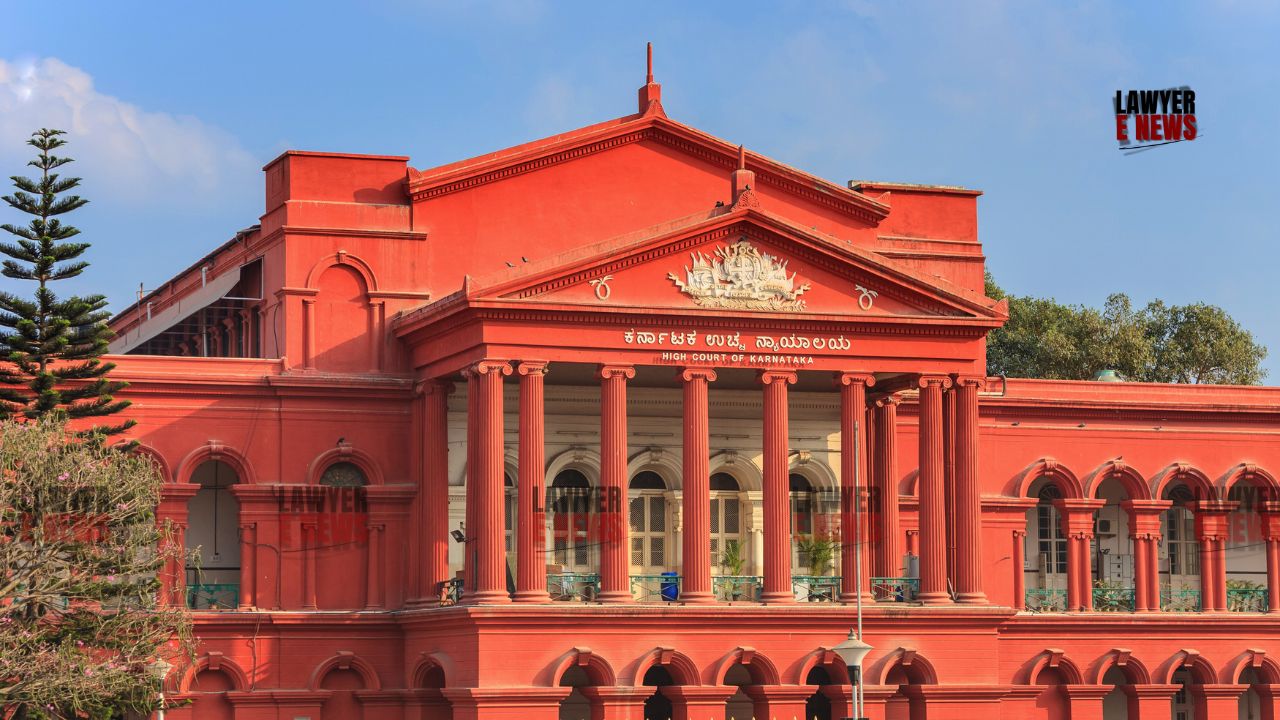-
by Admin
15 February 2026 5:35 AM



Bengaluru, July 2024 – The Karnataka High Court has upheld the concurrent judgments of the Trial Court and the First Appellate Court, which granted specific performance of a sale agreement dated April 3, 2000. Justice H.P. Sandesh dismissed the appellants’ claims that the agreement was meant as security for a loan, reaffirming the enforceability of the sale agreement.
The Karnataka High Court has dismissed the appeal in the case of Smt. Manjula and others vs. Sri K.G. Pramod Kumar, affirming the decisions of the lower courts to grant specific performance of a sale agreement. The court emphasized that the clause for refund within the agreement did not preclude the right to specific performance, reinforcing the validity and enforceability of the contract.
The case originated from a dispute over a sale agreement executed on April 3, 2000, wherein Smt. Manjula, her sons Sri Karthik and Sri Vyshak, agreed to sell a property to Sri K.G. Pramod Kumar for a consideration of ₹2,55,000, which was paid in full on the same day. Despite the buyer’s readiness to complete the transaction, the sellers failed to execute the sale deed, leading to a lawsuit for specific performance.
The appellants argued that the agreement was a security for a loan rather than a genuine sale contract. They contended that the property was not intended to be sold and that the clause allowing for a refund with interest indicated the true nature of the transaction.
Justice H.P. Sandesh noted that the trial court had thoroughly examined the evidence, including admissions by the defendants regarding the execution of the sale agreement and receipt of the sale consideration. “The answers elicited from the mouth of D.W.1 [defendant witness] are clear that it was a sale agreement and not a document of a loan transaction,” the judgment stated.
The court extensively discussed the legal implications of the refund clause in the sale agreement. “Clause No.10 of the agreement, which provides an alternative remedy for refund with interest, does not negate the plaintiff’s right to seek specific performance,” Justice Sandesh observed. The clause was intended to protect the parties’ interests, not to exclude specific performance as a remedy.
The judgment emphasized that the consistent findings of both the Trial Court and the First Appellate Court were based on a careful consideration of the evidence. “When the material on record discloses that the defendants agreed to sell the property when they were in need of money for construction of the house, and when the amount was utilized for construction, the court cannot reject the relief of specific performance,” the court asserted.
Justice Sandesh remarked, “The very contention of the learned counsel for the appellants that it is only a loan transaction and the document is executed as a security document cannot be accepted.” He further noted, “Clause No.10 will not disentitle the plaintiff to get the relief of specific performance. That is one of the remedies alternatively given to the plaintiff.”
The Karnataka High Court’s decision to dismiss the appeal underscores the judiciary’s commitment to upholding the enforceability of genuine sale agreements, even in the presence of clauses offering alternative remedies. This judgment reinforces the legal framework supporting specific performance and sends a strong message regarding the sanctity of contractual obligations.
Date of Decision July 3, 2024
